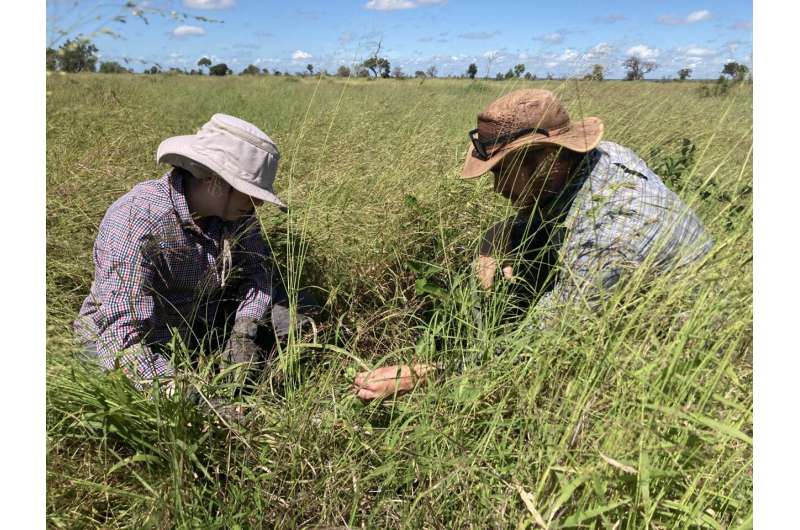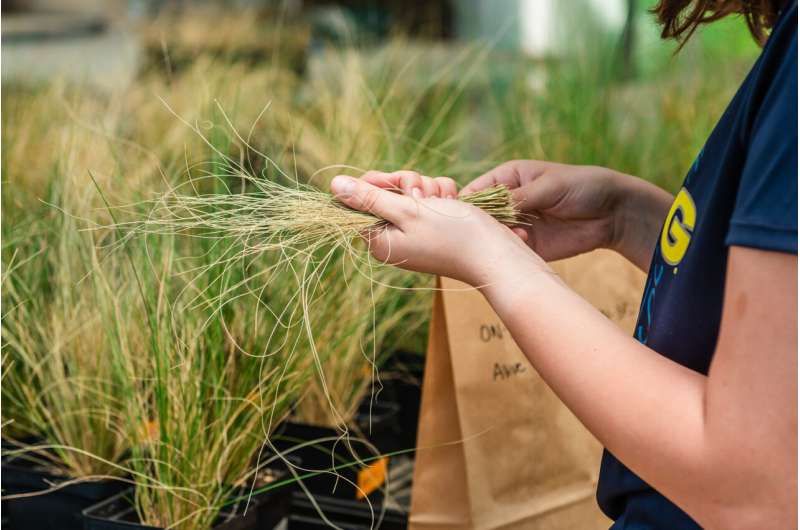This article has been reviewed according to Science X's editorial process and policies. Editors have highlighted the following attributes while ensuring the content's credibility:
fact-checked
peer-reviewed publication
trusted source
proofread
New research can help better predict the health and sustainability of 'grassy' ecosystems

Newly published research from UNC Greensboro's Dr. Kevin Wilcox and colleagues will help scientists better predict how global changes—such as droughts, fires, and heat waves—will impact the health and sustainability of the Earth's grassy ecosystems.
The article, published October 10, 2023, in Global Change Biology, provides key steps forward to improving mathematical models that forecast changes to our planet's savannas, prairies, grasslands, and arctic tundras.
"Forest ecosystems tend to get the lion's share of public attention," said Wilcox. "But ecosystems dominated by non-tree vegetation—that is, 'grassy' ecosystems—make up 40 percent of Earth's land surface. So our research is playing important scientific 'catch-up' in these landscapes."
Grassy ecosystems provide many necessary resources and services to humans, including food production, pollinators, and carbon sequestration. They also serve as critical habitat for wildlife, such as elk and bison in North America.
Yet, when one looks deeper into humankind's ability to predict how these ecosystems will persist under forthcoming global changes, the research lags far behind the predictive capacity for forests. Wilcox's research on Earth system models is helping to close this gap.
Scientists use these models to simulate the effects of physical phenomena, such as droughts and heat waves, on landscapes. The mathematical equations that make up these models are strung together to create thousands of lines of computer code that ultimately provide an abstraction of reality. These models represent a wide range of ecological processes, such as rainfall penetrating the soil, insects defoliating a savanna, or heat stress causing plant and animal mortality.

"But if our models don't accurately represent ecological processes, their predictions are meaningless," said Wilcox.
An important facet to get right, Wilcox explains, is the ever-changing nature of these grassy systems.
"We can't just assume that all of the major components of the ecosystem, such as plant communities, will remain unchanged as droughts and heat waves continue to occur."
One of the biggest challenges is how grasses are represented. Currently, many models represent grasses as either miniature trees or as a 'green slime' that exists on the surface of the planet. The authors say this representation may be part of why the models have had trouble matching real-world observations in grassy ecosystems.
"Better collaboration between empiricists and modelers will also be key for improving herbaceous dynamics within ecosystem models," adds Wilcox.
Implementing these changes, the authors say, will be vital in helping guide public policy and management of these important ecosystems in the future, when droughts and deluges are more frequent and extreme, disturbances such as fires are more severe, and human pressures continue.
More information: Kevin R. Wilcox et al, Accounting for herbaceous communities in process‐based models will advance our understanding of "grassy" ecosystems, Global Change Biology (2023). DOI: 10.1111/gcb.16950
Journal information: Global Change Biology
Provided by University of North Carolina at Greensboro


















